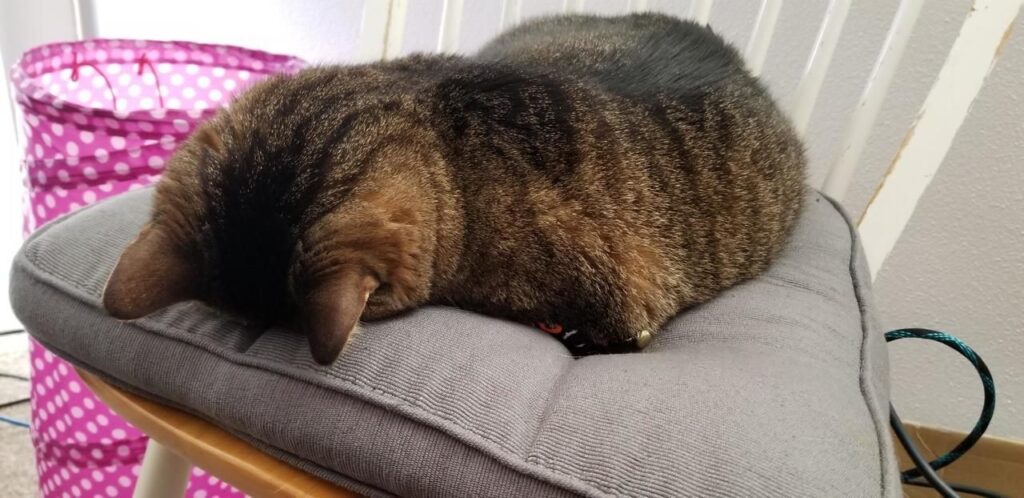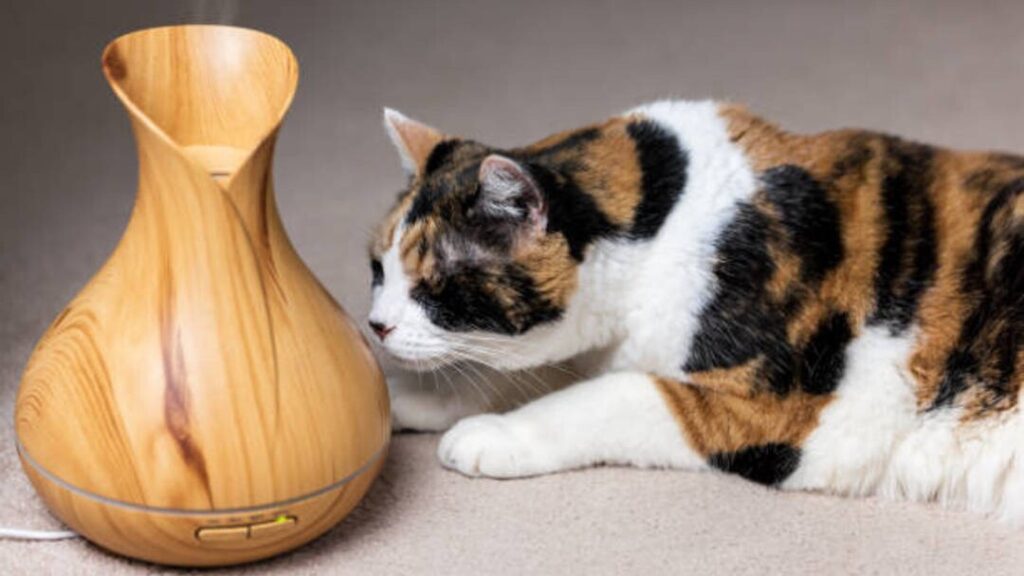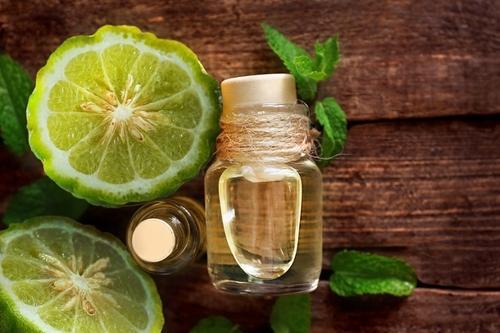The versatile fragrance of bergamot has been enchanting essential oil enthusiasts for centuries.
It is one of the most popular essential oils globally, courtesy of its wide range of healing properties, including:
- It has potent antibacterial and disinfectant properties, making it an effective deodorant.
- Its aroma is believed to sooth nerves and reduce anxiety
- It has an enlivening effect on the mood
- It is a Cicatrisant, which implies that it can help clear or lessen scars and other marks on the skin
- Its scent stimulate hormones that are known to reduce nerve sensitivity to pain
But can our pets benefit from these amazing healing properties of bergamot as well? In particular, is bergamot safe for cats? Can you diffuse bergamot around cats?
Well, we’ll find out shortly but first thing first…
What Is Bergamot?
Bergamot is a type of orange from the Citrus bergamia plant. It is native to the province of Reggio di Calabria, Italy, and around the Mediterranean.
The bergamia tree stands as tall as 12 meters with long, green leaves and white flowers (whenever it blossoms).
Bergamot fruit resembles a lemon or lime and has a distinct scent and flavor. Its taste can be likened to a mixture of lemon and bitter orange.
Generally, it is too bitter to eat raw but it tastes better when candied, in marmalades, tea, and preserves.
It is also highly aromatic and essential oil is often extracted from its rind through machine abrasion.
The oil is used to make colognes, perfumes, and scented soaps. It is also what gives Earl Grey tea its characteristic aroma and flavor.
Is Bergamot Safe For Cats?

The short answer is No. According to ASPCA, bergamot is not safe for your kitty because it has certain toxins that can be dangerous for cats if ingested.
Our feline friends also lack enzymes that can break down citrus oils. If ingested by a cat, bergamot essential oil will cause vomiting, diarrhea, heavy panting, depression, lethargy, and photosensitivity.
The main toxins in bergamot is psoralen (or 5-methoxypsoralen), a chemical that causes phototoxicity.
Grapefruit juice and other citrus essential oils also contain psoralen.
Once inside your kitty’s body, it absorbs energy directly from the sun and uses it to catalyze or fuel a chemical reaction.
The reactions often cause rashes and blisters, which are common symptoms of citrus fruit poisoning.
The reactions can also cause a wide range of health problems because they interfere with the nervous system’s capacity to regulate bodily functions.
Note that bergamot herb is different from Bergamot. The former is from a different plant, Monarda didyma, which belongs to the family, Lamiaceae. And when it comes to safety around pets, bergamot herb is safe for cats.
Can You Diffuse Bergamot Around Cats?

Your kitty’s sense of smell is an inherent part of how she explores the world. Just think of how your fur baby sniffs every new food before tasting it.
Put simply, our feline friends are far more sensitive to smells than us. So, while we can diffuse many of the store-bought essential oils without any problem, they can be toxic to our cats.
If a cat breathes a toxic harmful essential oil, for instance, she may suffer from respiratory irritation—which causes watery eyes and noses, vomiting, drooling, and difficulty in breathing.
In particular, bergamot and other citrus oils are dangerous to diffuse around cats because they lack the enzymes to break them down.
Inhalation of certain essential oils can also cause foreign body pneumonia in cats.
Finally, certain diffusers tend to release micro-droplets in the air which may collect on the fur of your kitty. Your cat may ingest these oils while she is grooming herself and suffer the above-mentioned consequences.
Diffuse With Care
If you have to diffuse bergamot in your home, there are a few precautions worth taking to keep your kitty safe, including:
- Diffuse away from areas where your furbaby spends most of her time.
- Whenever you are diffusing the oil, ensure that your kitty can easily get away from the diffuser i.e when she is overwhelmed by the smell.
- If you suspect that the oil may end up on your kitty’s skin, consider diluting it with a carrier oil to protect her from possible skin irritation. Some of the best carrier oils you can use are avocado oil, olive oil, coconut oil, and jojoba oil.
What to Do If Your Cat Accidentally Ingests Bergamot
In case your kitty accidentally ingests bergamot or bergamot oil, consider doing the following:
- Move your kitty to fresh air immediately you suspect that she is in distress.
- If the cat doesn’t seem to recover fast, seek emergency veterinary care.
- Administer more fluids if dehydration has set in.
- Limit the cat’s activity level by confining her to the house for a few days following the poisoning incidence. This will go a long way in giving her body ample time to recover.
- Following the poisoning incidence, feed the cat a liquid diet as it is easier to digest (hence less risk of being regurgitated) than solid foods.
Final Thoughts
Although bergamot has potent healing properties, it is prudent to use it with awareness around cats.
As we have seen, it is not safe for cats, so always consult with your local vet or aromatherapy expert before diffusing it in your home or using it around your kitty.

Hi! I am Eleanor Price. I started this website after my cat, Louie, almost died from a case of botulism (a type of food poisoning often caused by bacteria that grow on food items). Turned out that my cat’s diet was the problem. I have made it my duty to provide the best information and recommendations about everything cat lovers need to know about their felines’ health and wellbeing. My goal is to find the most informative content on anything feline-related and share it with fellow hardworking kitty lovers.

